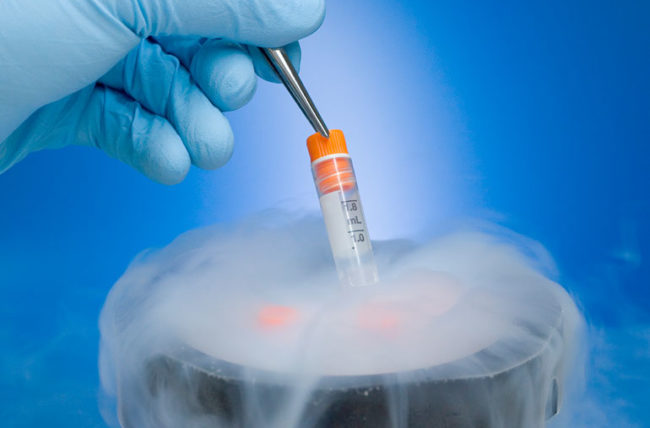What you should know about infertility and freezing your eggs
Many have always wondered why some women give birth to children with birth defects and abnormalities such as down’s syndrome, spina bifida, autism, heart defects, and others. Asides genetic problems and infections, one other underlying factor is a woman’s egg. When the quality of the egg has reduced or is poor due to the advanced […]

Many have always wondered why some women give birth to children with birth defects and abnormalities such as down’s syndrome, spina bifida, autism, heart defects, and others.
Asides genetic problems and infections, one other underlying factor is a woman’s egg. When the quality of the egg has reduced or is poor due to the advanced age of the woman, she has a chance of giving birth to a child with abnormalities.
Age is the most significant factor affecting egg quality in women while adding that some young women may also have poor quality eggs as a result of genetic problems, immunological issues, cancer treatment, among others.
Medical Director of Nordica fertility centre, Dr Abayomi Ajayi explained, “Women have a biological clock, she has a period where she may not produce eggs again. A woman has her best eggs when she is younger. A woman’s fertility starts to decline after 32 years of her life. At that age, the reserves are left till she is 37 to 38 years. But it becomes difficult for women to conceive after 38 as the eggs that are left are not of the same high quality like it was before she clocked 32. The incidence of having children with abnormalities is higher when a woman gives birth after 38 years.”
To reduce the incidence of having an abnormal child, the fertility expert advises women to freeze their eggs.
“I would advise those who are yet to marry and have clocked the age of 30 to consider egg freezing as an option as fertility decreases when one is above 35 years.”
Globally, 15 percent of couples are affected by infertility which amount to 48.5 million couples, according to a report by Ashok Agarwal published in NCBI.
In the United states, around 10 per cent of women aged 15 to 44 years are estimated to have difficulty conceiving or staying pregnant.
In Nigeria, Ajayi pointed out that the incidence of infertility is very high for obvious reasons.
It is believed that about 20 to 25 per cent of Nigerian women suffer infertility, though there are no clear figures of infertility rate in Nigeria, he said.
To increase the fertility rate of women in Nigeria, Abayomi insists women should freeze their eggs at a young age as the eggs are at their best quality at that time.
“Interstingly, when the eggs are frozen, they are at the age it was by the time it was frozen regardless of whether the egg owner needs it 10 years later or more.”
Regarding why a woman should freeze her eggs, he explained, “She should freeze her eggs when she is already 32 and she has no partner or she is not ready to have a baby yet. Cancer patients can store their eggs till they are done with their treatment. Repeated fibroid surgery, also affects the eggs as the ovaries will be touched continuously. So, if a woman will be having a repeat surgery and she has no children yet, she should store her eggs.
“Women don’t need to marry just anyone for the sake of getting a child due to their biological clock ticking. They can freeze their eggs and decide to wait till they are ready or till they find the right person. Women who want to go to school and want to finish their studies while being mindful of their fertility can also freeze their eggs. Other diseases such as endometriosis can also lead to eggs not being in good condition.”
So, how many eggs need to be frozen and when? The fertility expert explained a woman needs to store as many eggs as possible when young as she produces more eggs during that period. He said there are some women who might want to store only four eggs, however, for it to be realistic, nothing less than 15 eggs should be stored. There are instances where someone can get all the 15 at once and in the worst-case scenario, it can be gotten from two procedures.
The expert emphasized that freezing of eggs will require money as it won’t be stored free of charge.
“Also, IVF will be done to take the eggs before it is kept. That will also require money. In some parts of the world, eggs can only be kept for 10 years, but in Nigeria, individuals can keep for as long as they want.”
He noted that egg freezing is not so popular in Nigeria and he urged women to ensure they visit a reliable fertility clinic before embarking on it.
